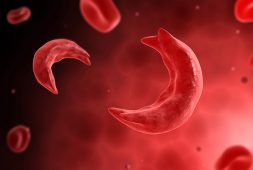
Administering doses from a vial can pose challenges, with individuals occasionally misinterpreting measurements such as 0.1 millimeter for 1.0 millimeter, resulting in a tenfold increase in the prescribed dosage. This issue is particularly evident with semaglutide, a component of injected drugs like Wegovy and Ozempic used for weight loss and diabetes management. The year 2023 has witnessed a concerning trend, with calls to poison control centers regarding unintentional overdoses of semaglutide poised to approximately double, mirroring a similar surge observed in 2022.
Throughout the United States, poison control centers are grappling with an escalating number of distress calls related to inadvertent semaglutide overdoses. Data compiled by America’s Poison Centers from January to November 2023 reveals an alarming figure of almost 3,000 calls associated with semaglutide, nearly doubling the reported cases in 2022. Collectively, incidents involving semaglutide have witnessed an astounding surge of approximately 1,500 percent since 2019. This upswing underscores the pressing need for increased awareness and education regarding the accurate administration of medications to mitigate the risks of unintentional overdosing.
“I believe calls are increasing because the overall use of the medication is increasing,” Julie Weber said. She is a registered pharmacist and director of the Missouri Poison Center and a board member of America’s Poison Centers.
Semaglutide Overdose May Lead to Serious Gastrointestinal Problems
Semaglutide overdoses are predominantly associated with gastrointestinal complications such as nausea, vomiting, and abdominal pain, according to Weber. Additionally, individuals may encounter symptoms such as headaches, dizziness, or tremors.
In more uncommon and severe instances, individuals may undergo intense vomiting, leading to a significant risk of severe dehydration and electrolyte imbalance. Weber emphasizes that if these conditions are not promptly addressed, they can pose a life-threatening danger.
The incidence of accidental semaglutide overdoses has been on the rise in recent years, coinciding with the increased availability of injectable drugs containing this compound designed to manage diabetes and facilitate weight loss. The approval of Ozempic by the U.S. Food and Drug Administration (FDA) in 2017 marked the introduction of the first drug within the GLP-1 agonists family, which incorporates semaglutide, aimed at treating type 2 diabetes. Subsequently, in 2019, the FDA granted clearance to Wegovy, another drug formulated with semaglutide, specifically designed for weight loss purposes.
“Unintentional medication errors account for most of the increase in reported cases to poison centers,” said Gary Smith, MD, DrPH. He is the director of the Center for Injury Research and Policy at Nationwide Children’s Hospital.
Ozempic and Wegovy Dosing Mistakes
According to Joseph Lambson, PharmD, who serves as the director of the New Mexico Poison and Drug Information Center in Albuquerque, Ozempic and Wegovy are marketed in pen form, designed to administer a predetermined dosage, thereby reducing the risk of unintentional overdoses.
“That being said, overdose is possible with pens that can provide different doses if patients select the incorrect dose,” Dr. Lambson stated.
The enduring scarcity and increased demand for Ozempic and Wegovy might indirectly be associated with inadvertent overdoses, as noted by Lambson. The shortages are prompting individuals to pursue compounded versions of semaglutide, available in vials, where users must independently measure the correct dosage using a needle and syringe.
“It is more common for patients to experience dosing errors when drawing up their own medications compared to pre-filled pens or syringes,” Lambson said. “This, in addition to the popularity of the drug, is most likely contributing to the increased call volume we are experiencing.”
In New Mexico, poison centers have received calls from individuals who accidentally doubled their semaglutide dosage, administered the medication too quickly after their last dose, or misunderstood the dosage instructions, according to Lambson. Although there have been no reported fatalities, 43 percent of those contacting the centers due to accidental semaglutide overdoses needed urgent medical attention.
What to Do When Overdosing on Semaglutide
Common side effects such as nausea, vomiting, or abdominal pain may occur in the event of a semaglutide overdose with medications like Ozempic and Wegovy, even when taken as prescribed. Weber recommends individuals facing these symptoms to reach out to their healthcare provider or contact their local poison control center at 800-222-1222 if they are unsure about the appropriate course of action.
“By contacting the poison center, a medical expert immediately is available to help evaluate whether medical care should be sought or provide guidance for home observation,” Weber said.



